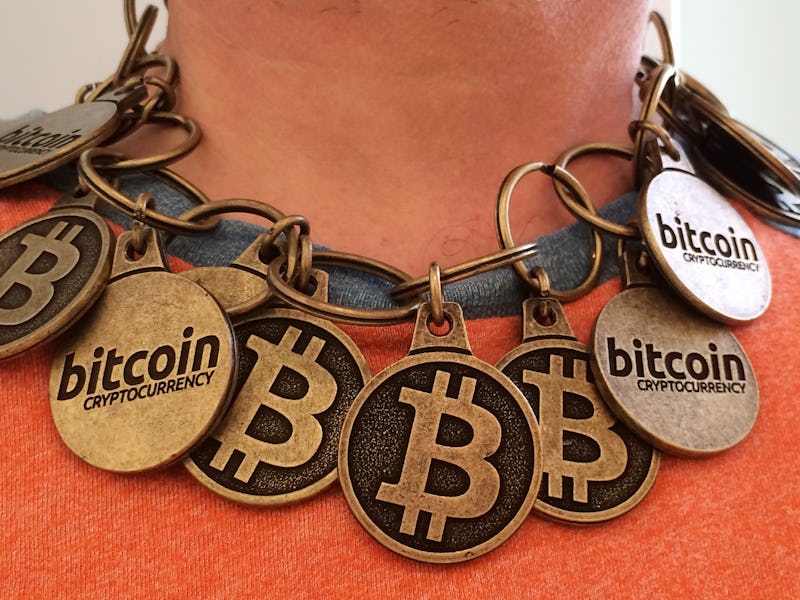The Surging Bitcoin Faces Two Barriers to Going Primetime
The blockchain isn't ready for prime time.

From socialist activists to financial advisors, from anarchist criminals to Homeland Security, everyone seems to want a better blockchain. This week saw renewed calls to use the decentralized, public digital ledger technology to administrate social services, border checks, really the entire government the same way it already administrates the transfer of cryptocurrency like bitcoin, which is at an all-time high. There’s just one problem: the blockchain is not remotely ready for the pressure these diverse boosters want to put upon it.
That was the message at the Consensus 2017 blockchain tech summit on Tuesday, when the Fidelity Investments CEO Abby Johnson called for cooperation to fix the blockchain. Those researchers don’t have much time left, however, before the current limitations of blockchain slow progress.
“Blockchain technology isn’t just a more efficient way to settle securities — it will fundamentally change market structures — and maybe even the architecture of the internet itself,” Johnson said, as reported by Bloomberg.
There are two big problems with the core blockchain tech that need to be solved before any of them can truly hope to change the world, though: Security and scale.
What is Blockchain Technology?
The blockchain is, put simply, a publicly visible, cloud-based textual record, protected by strong encryption. What gets recorded in the blockchain can vary greatly, and people have used it to store unique identifiers for digital currencies (this is why users can’t duplicate bitcoins), as well as more complex “smart contracts” that require the blockchain to take some basic action. If I agree to pay quarter-bitcoin upon delivery of a file, and I get the file, I can’t renege on the deal, because the blockchain is the one administrating the transaction. In principle, I gave up my money to a sort of crypto-escrow service the instant I signed the contract, not the instant the deal was completed.
Why Security is a Problem on the Blockchain
The blockchain is not truly secure. It’s supposed to be, but high-profile hacks keep occurring due to bugs and hard-to-find weaknesses in the code. There was the famous Mt. Gox hack, the less-famous DAO hack, and the not-at-all-famous Bitfinex hack, which collectively account for the better part of $650 million in stolen bitcoin.
This problem is only getting worse, according to security analysts at ZeroFox, but there has been some recent progress. Just this Wednesday, scientists from MIT proposed a solution to the problem of bitcoin “identity theft,” shoring up an exploit that can allow limited duping of bitcoins. This will have to be part of a much larger body of research before we could ever actually see the most promising possible applications in the real world, however.
Why the Blockchain Doesn’t Work Well on a Large Scale
The second problem with the blockchain is that it just doesn’t work very well when you make it big. By far the biggest reason for this is power; bitcoin was once projected to consume more electricity than Denmark, but let’s put it another way: a single bitcoin transaction could power the average American home for a day and a half.
It doesn’t matter how high the value of bitcoin climbs, the world will quite simply never run on a system like that, not until we invent cold fusion for unlimited energy production.
Huge research institutions have been created largely to try to solve this one, from the Open Ledger Initiative (with investors like Intel and J.P. Morgan) to the oddly named MIT-led venture “bsafe.network”. Some people think the software needs to change, others think we just need blockchain-tailored computers. But everyone agrees that what we have now simply will not do.
IBM’s director of research recently predicted that 90 percent of blockchain companies will fall into a “chasm of death” while waiting for their revolutionary blockchain applications to become possible in the real world.
With time quickly running out, the world’s blockchain researchers are doing everything they can to prove him wrong.